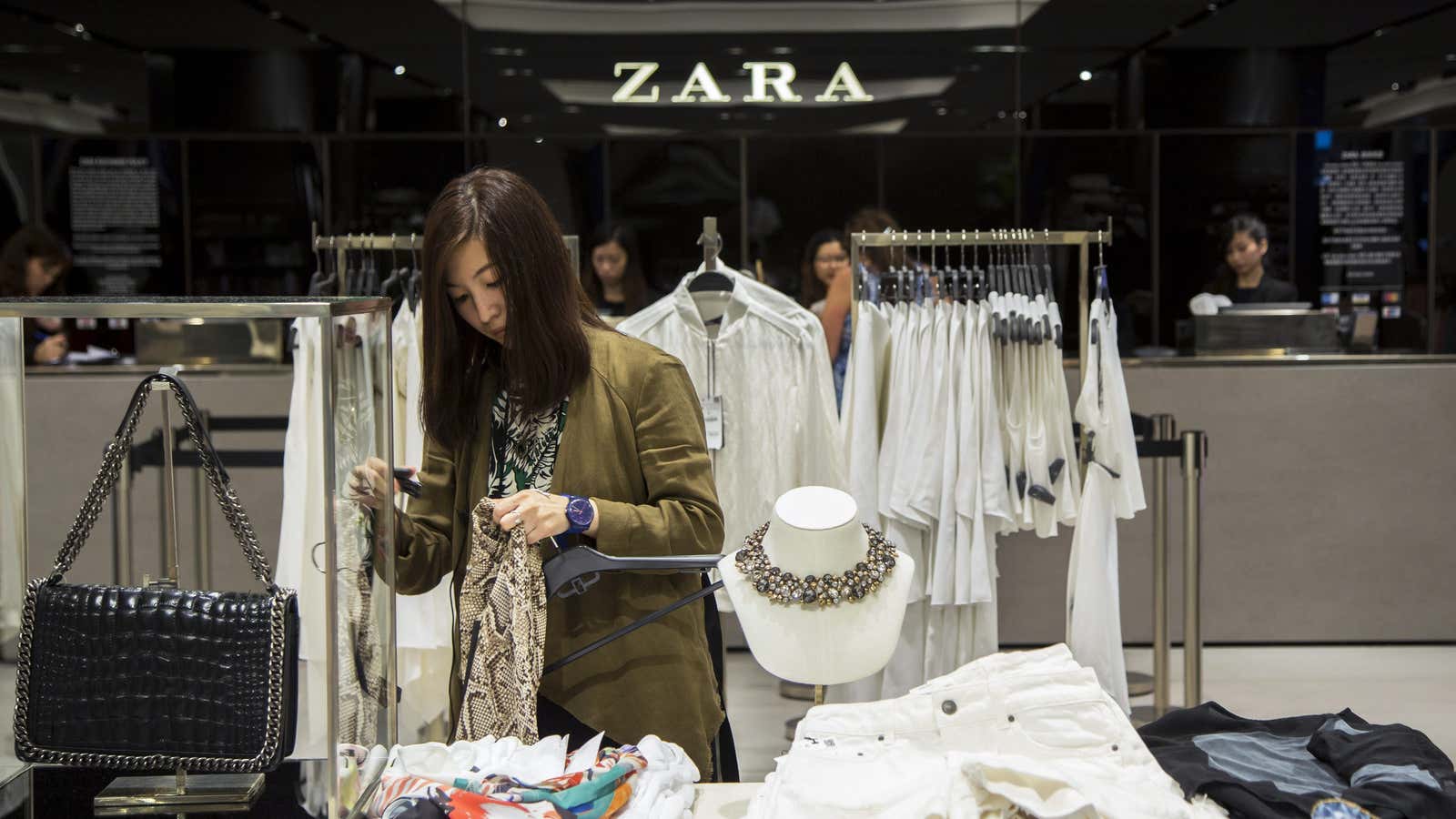Until yesterday, Zara’s parent company, Inditex, had a statement on its website stating the company’s zero-tolerance policy for forced labor and that it did not have relationships with any factories in Xinjiang.
As of this writing, Inditex’s statement has been removed. The company hasn’t said why and did not reply to a request for comment by the time this story published. It is still visible on the Wayback Machine, an online archive of web pages. The last snapshot of the page, on Dec. 23, shows the statement calling reports of forced labor in Xinjiang “highly concerning.”
H&M, which is in the midst of a heated backlash in China over its stance on Xinjiang, has also apparently taken down a statement about its sourcing in the region, though a separate one remains available with similar language expressing concern about allegations of forced labor.
The moves show the companies are trying to manage the fallout they’re facing in China, as social media users, celebrities, officials, and state media condemn international companies that have made past statements distancing themselves from any links to Xinjiang. First aimed at H&M, the anger has spread to other companies as well. Inditex is among those that have been called out on Weibo, a large Chinese social media platform.
Companies are now contending with a tricky situation that could force them to choose between ethics and sales. Western researchers and officials say Uyghurs and other predominately Muslim ethnic minorities in Xinjiang are subject to forced labor and human rights abuses under the guise of programs to modernize and integrate them into Chinese society. The region is China’s cotton hub, and with China being one of the world’s biggest cotton producers, as well as its largest exporter of textiles, companies have been scrambling to assure authorities and customers their products aren’t implicated. But in doing so, they’ve made themselves a target of Beijing.
China’s push back on Xinjiang
China has consistently denied accusations of a campaign against Uyghurs and is pushing back in its escalating conflict with western nations over the issue. It recently issued sanctions on European officials and organizations in retaliation for the European Union, US, and Canada announcing coordinated sanctions on Chinese individuals and one entity they say have perpetrated human rights abuses in Xinjiang.
Now international companies are coming under fire for their past statements on Xinjiang from Chinese officials and state media, which have a history of whipping up anger among Chinese citizens against companies that don’t fall in line with Beijing’s position.
Among the companies that have made such statements are giants such as Nike, Adidas, Gap, and Fast Retailing, which owns Uniqlo. Chinese celebrities have begun cutting ties with several of them as calls for boycotts grow.
Companies appear to have a choice: They can stand firm or back down. The stakes are potentially high. China is the world’s largest fashion market and a key driver of growth at numerous companies. Inditex doesn’t break out its sales in China separately, but it had 141 Zara stores (pdf) in the country in 2020, more than it had in the US.
The company’s removal of its Xinjiang statement hasn’t escaped notice. The Beijing-backed Global Times drew attention to it in a story. Johnson Yeung, a Hong Kong-based human rights advocate, also cited it in expressing concern on Twitter that companies would make themselves complicit in rights abuses.
